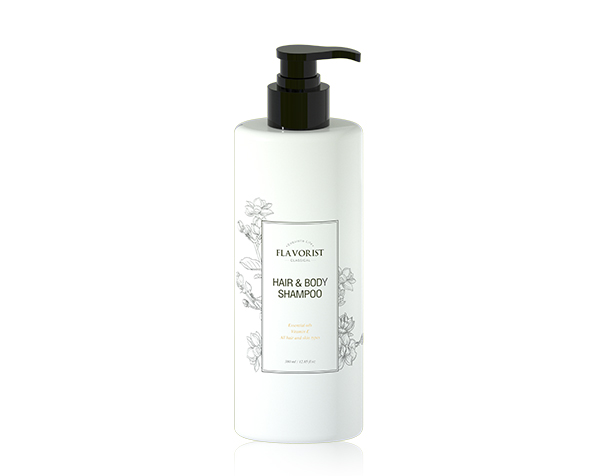Shampoo Pump Dispensers: Everything You Need to Know
In the world of personal care, the humble shampoo pump dispenser plays a critical role in ensuring convenience and efficiency in everyday routines. From its design to functionality, a quality shampoo pump dispenser can elevate the user experience, providing ease of use while minimizing waste. In this guide, we’ll explore the various aspects of shampoo pump dispensers, including their features, benefits, materials, and why they are an indispensable part of modern packaging solutions.
What is a Shampoo Pump Dispenser?
A shampoo pump dispenser is a mechanical device designed to release a measured amount of shampoo or liquid product with a simple press. These dispensers are commonly seen in bottles of shampoos, conditioners, lotions, and other liquid-based personal care products. The pump’s function ensures that the user gets just the right amount of product without wastage, making it an eco-friendly and cost-effective solution.

Key Features of a Shampoo Pump Dispenser
Controlled Dispensing: Each pump releases a specific amount of liquid, ensuring consistency.
Lock Mechanism: Many shampoo pumps include a lock system to prevent accidental spillage during transport.
Ergonomic Design: The pumps are designed for ease of use, especially in wet environments such as bathrooms.
Durability: Made from high-quality materials like polypropylene (PP) or polyethylene (PE), these pumps are built to withstand regular use without breaking down.
Advantages of Using Shampoo Pump Dispensers
1. Convenience and Efficiency
Shampoo pump dispensers provide unmatched convenience in daily use. Unlike squeeze bottles, where it can be difficult to control the amount of product released, a pump dispenser offers precise dosing. With a single press, users can access the perfect amount of shampoo, reducing the risk of overuse.
2. Hygiene and Cleanliness
One of the primary benefits of shampoo pump dispensers is their hygienic design. By minimizing direct contact with the product inside the bottle, the pump prevents contamination. This feature is particularly important in public places such as gyms, salons, and hotels where multiple people may use the same product.
3. Eco-Friendly and Cost-Effective
With precise dispensing, users are less likely to waste shampoo. Over time, this results in significant cost savings, especially for businesses. Additionally, many pump dispensers are designed to be reusable and refillable, reducing plastic waste.
4. Enhanced User Experience
The ergonomic design of most shampoo pump dispensers allows for easy operation, even with wet or soapy hands. This makes them especially ideal for the elderly, children, or individuals with mobility issues.
Different Types of Shampoo Pump Dispensers
There are several types of shampoo pump dispensers available in the market, each offering unique features to suit different needs. Below are the most common types:
1. Standard Lotion Pump Dispenser
This is the most widely used dispenser type, offering reliable and consistent output with each pump. It’s designed to work with a wide range of viscosities, from lightweight liquids to thicker gels and creams.
2. Foam Pump Dispenser
Foam pump dispensers are becoming increasingly popular in the personal care industry. They mix air with the liquid product to create foam, offering a luxurious lathering experience. This type of pump is often used for shampoo formulas that aim to provide a lightweight, foamy texture.
3. Trigger Pump Dispenser
Though more commonly seen in household cleaners, trigger pump dispensers are occasionally used for larger shampoo bottles in commercial settings. The long trigger allows for a stronger and more controlled flow, ideal for dispensing higher volumes of shampoo.
4. Airless Pump Dispenser
An airless pump dispenser works by creating a vacuum inside the bottle, pushing the product up as it’s dispensed. This type of pump is particularly beneficial for preservative-free products, as it minimizes air exposure, keeping the formula fresher for longer.
Materials Used in Shampoo Pump Dispensers
The material used in a shampoo pump dispenser is critical for its durability, recyclability, and performance. The most common materials include:
1. Polypropylene (PP)
This is the most frequently used material in pump dispensers due to its durability and resistance to chemicals. PP pumps are lightweight, cost-effective, and recyclable, making them a popular choice for personal care products.
2. Polyethylene (PE)
PE dispensers are known for their flexibility and resistance to wear and tear. They are also recyclable and provide a smooth pumping action, ensuring longevity in both residential and commercial settings.
3. Metal Spring
Most pump mechanisms use a metal spring, typically made from stainless steel, to return the pump to its original position after use. This provides consistent performance and durability, especially for thicker liquids like shampoo.
How to Choose the Right Shampoo Pump Dispenser
When selecting a shampoo pump dispenser, several factors must be taken into account to ensure you choose the best option for your needs. These include:
1. Product Viscosity
The thickness of your shampoo will dictate the type of pump you need. Thicker formulas require a pump with stronger output, while lightweight liquids may only need a standard pump.
2. Bottle Size
The size of the bottle is another important consideration. Larger bottles may benefit from a trigger pump, while smaller bottles are better suited for a standard or foam pump dispenser.
3. Consumer Use
Consider who will be using the product. For personal care at home, a standard pump may suffice. In a commercial setting, such as a salon or gym, a more durable and robust pump design may be necessary.
4. Eco-Friendly Options
As environmental concerns become more prominent, many consumers are looking for eco-friendly shampoo dispensers. Choosing a reusable, refillable, or recyclable pump can significantly reduce plastic waste, aligning your product with sustainable values.
Conclusion
Shampoo pump dispensers are not just a convenience; they are an essential tool for anyone looking to maximize product efficiency, hygiene, and user experience. Whether you're choosing a dispenser for personal use or a commercial setting, understanding the features, types, and materials can help you make the best decision for your needs.


Comments
0